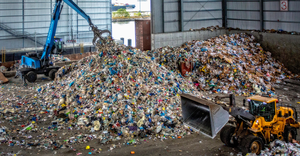WCRRC Releases Study on British Columbia’s EPR System for Packaging
New report details a lack of transparency and results from British Columbia’s packaging EPR system.
The West Coast Refuse & Recycling Coalition (WCRRC) just released a study that examines the British Columbia (BC) extended producer responsibility (EPR) system for plastics packaging. Advocates have looked to export the British Columbia EPR model to all three West Coast states to increase recycling and encourage manufacturers to use more recyclable packaging.
A new report commissioned by the WCRRC exposes numerous flaws and shortcomings with BC’s EPR Model for packaging. The report also documents a lack of transparency, which makes it nearly impossible to evaluate the program’s true cost, effectiveness or recycling rates. BC’s EPR model has failed to achieve significant environmental milestones, according to the report.
The report finds that examples of product redesign as a result of EPR policy in BC and Europe are “few in number and anecdotal at best.” Furthermore, manufacturers simply pass on the costs of EPR to their customers as a cost of doing business, the report notes.
“BC’s packaging EPR system fails to differentiate products based on recyclability and overall environmental performance,” said WCRRC in a statement. “In fact, the program actively discriminates against lightweight products that are hard to recycle but still have a lower environmental footprint than their recyclable competitors. BC’s EPR system is simply a recycle-only approach to materials management that is uninterested in achieving the lowest environmental footprint.”
The report also examines how BC’s EPR system is failing local governments as a financing system. Cost data is underestimated and lacks transparency, according to the report. BC’s EPR system pays incentive fees it determines are “reasonable” to local governments. As many BC communities have pointed out, these fees do not necessarily cover their full costs. As a result, the true costs of recycling are underestimated. Local governments make up the difference where the “reasonable cost” payment does not cover the real costs and residents pay as manufacturers pass on the hidden costs of EPR without notice.
About the Author(s)
You May Also Like


